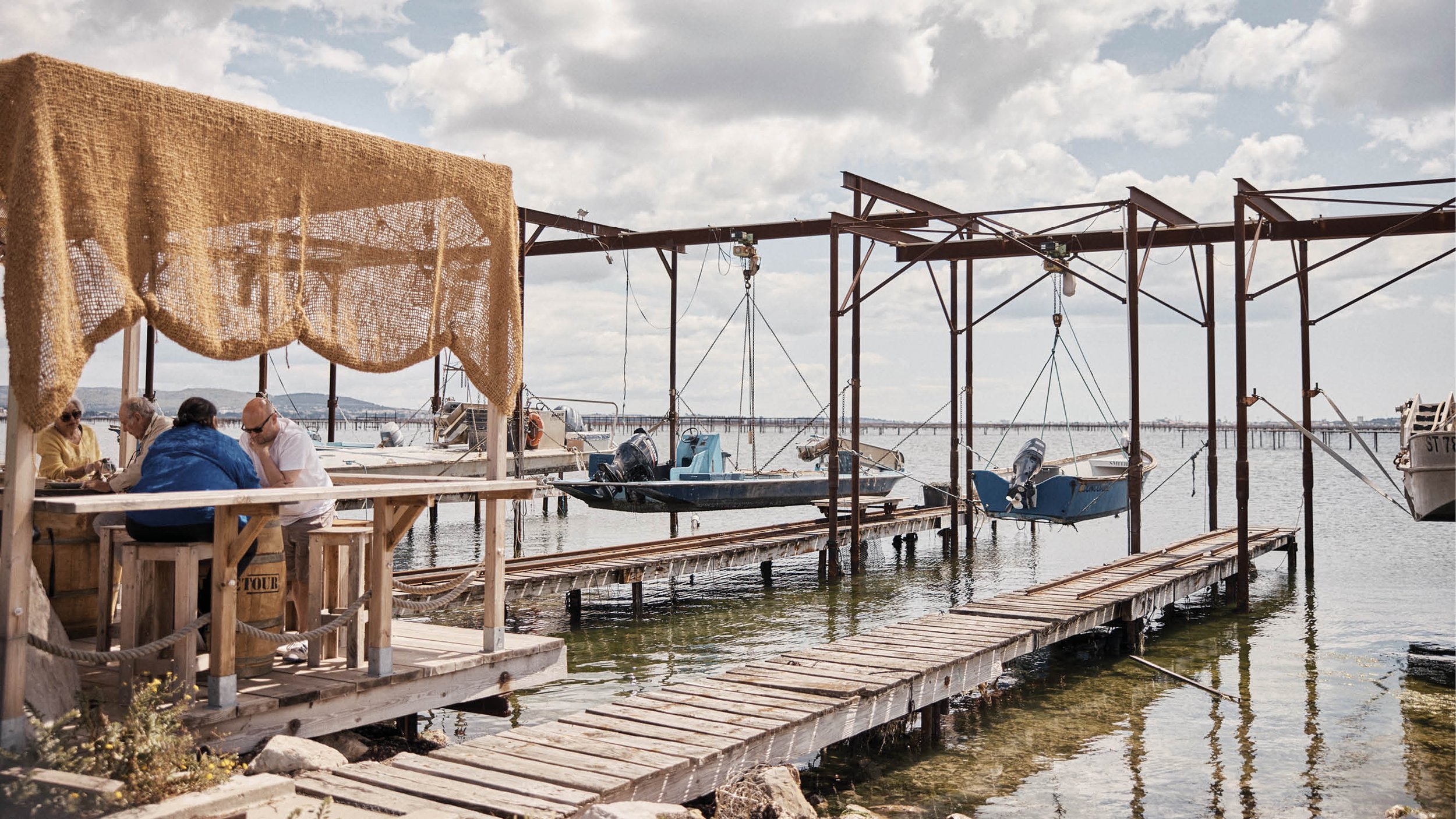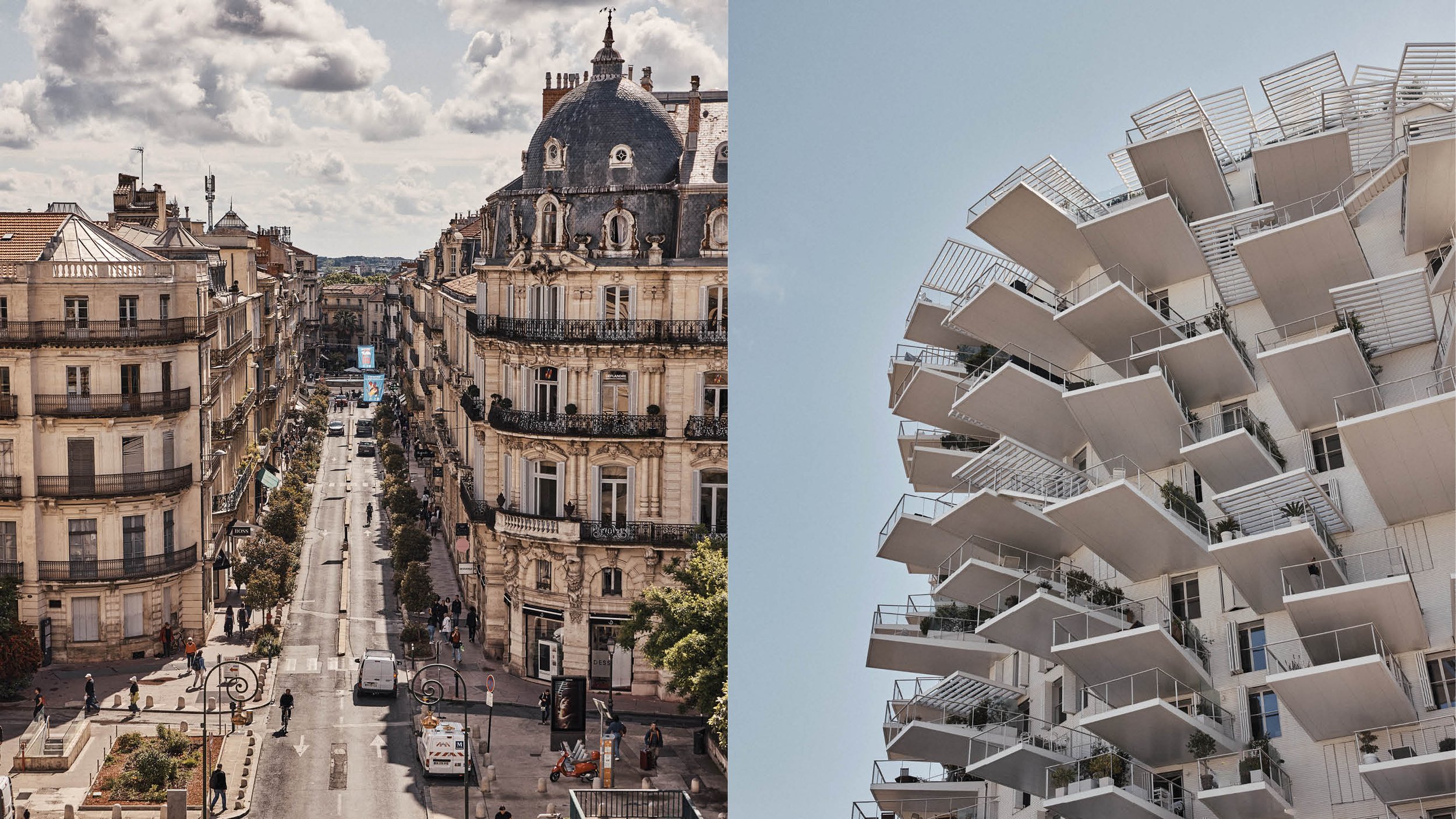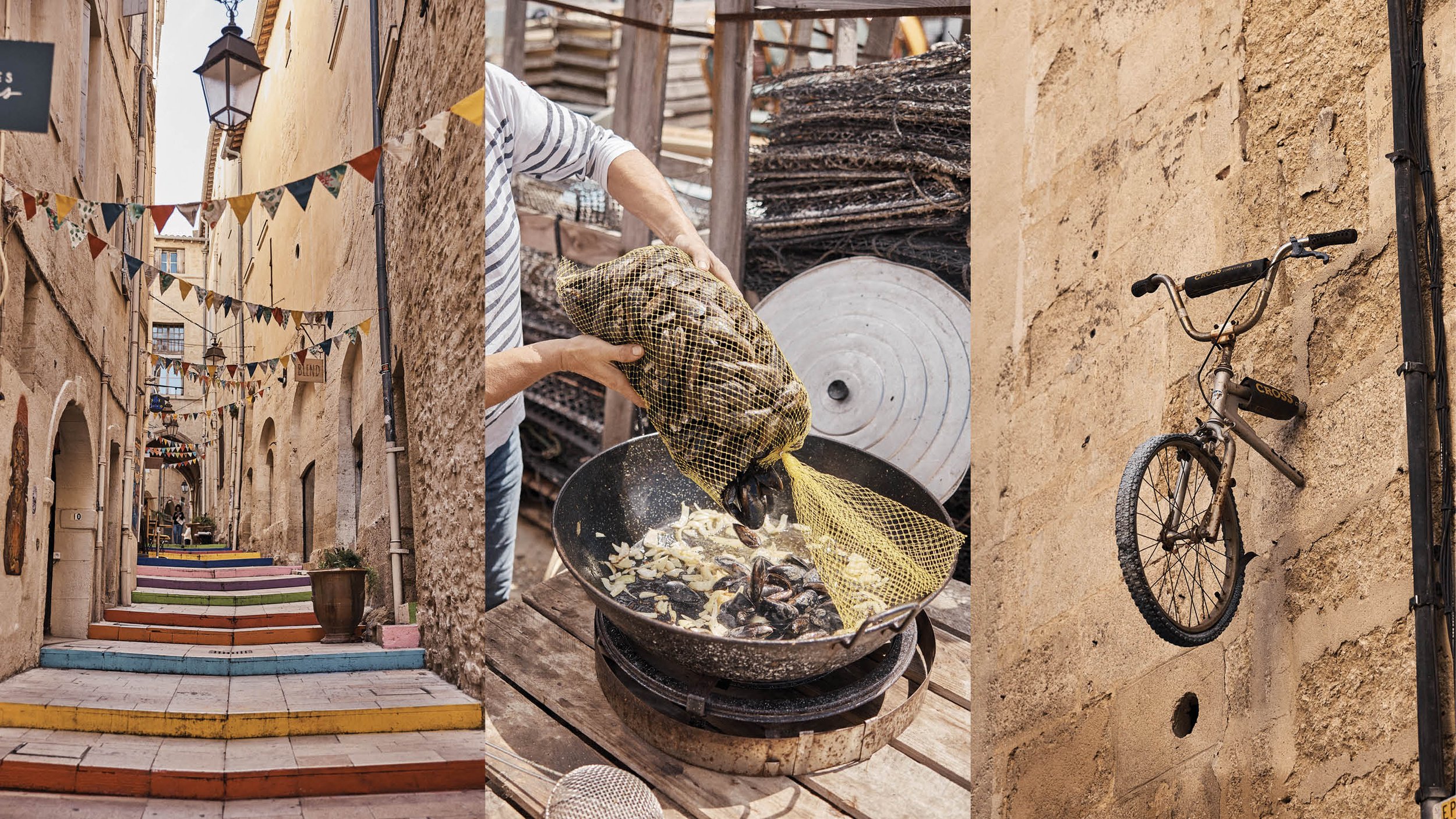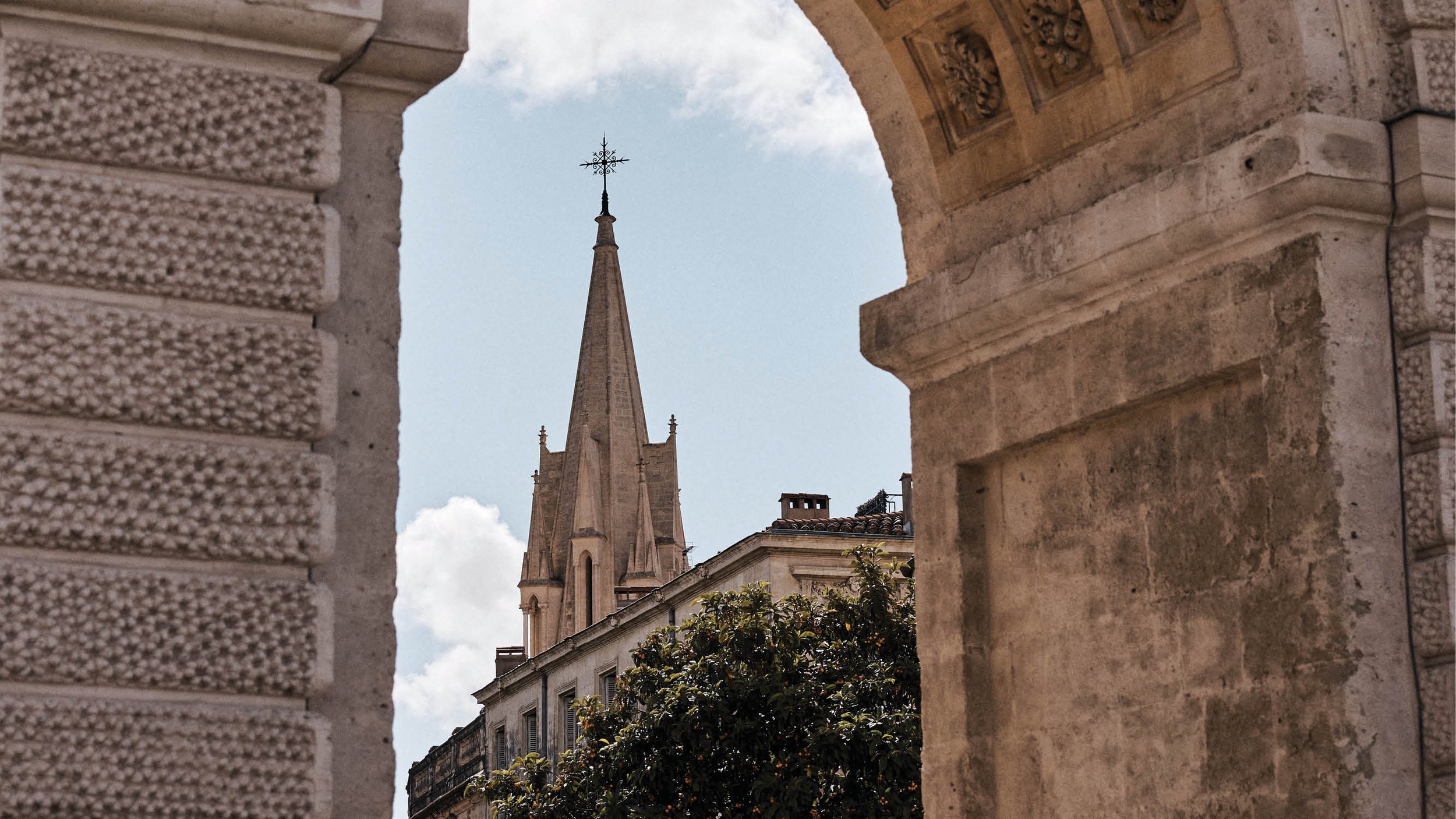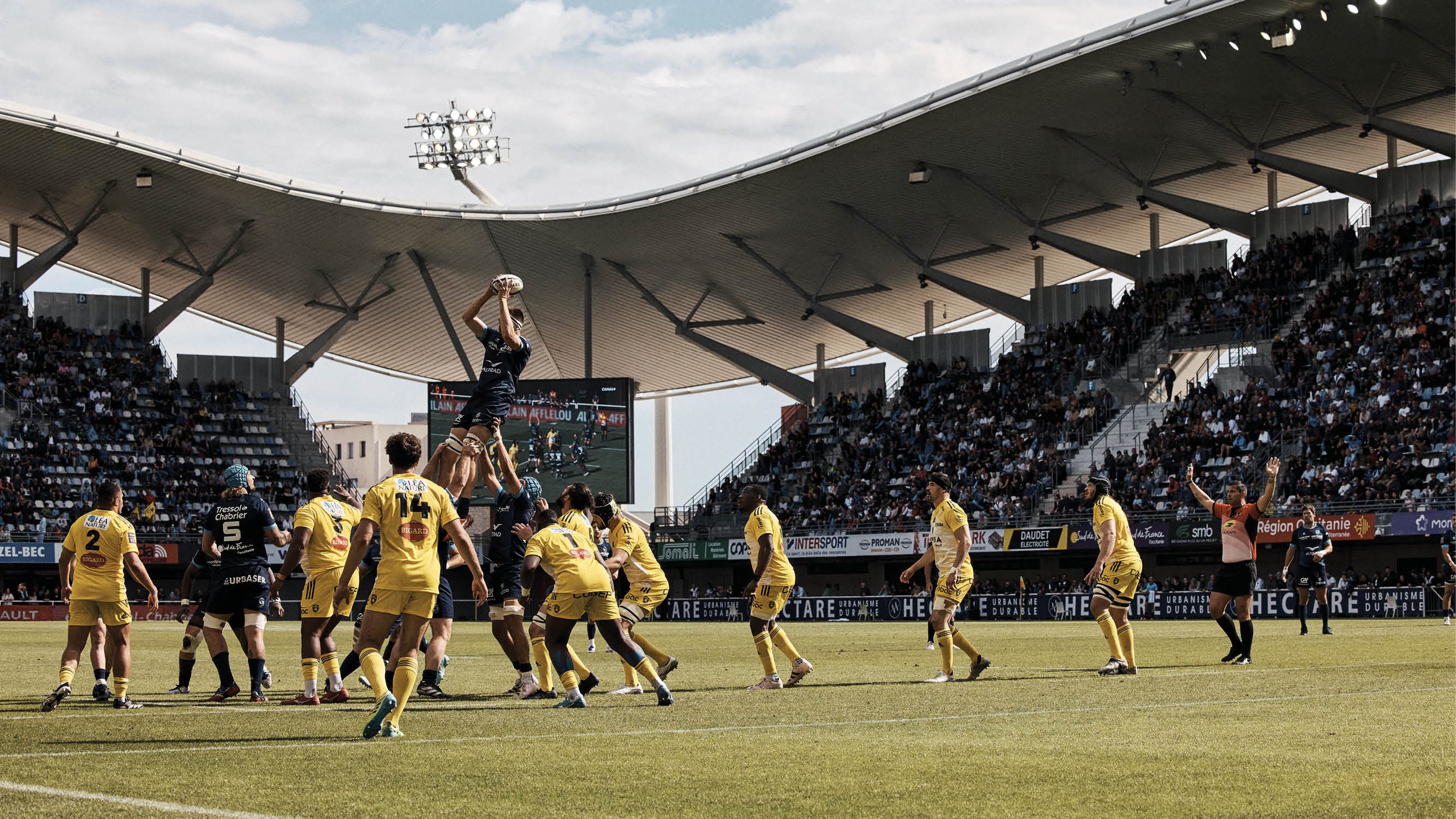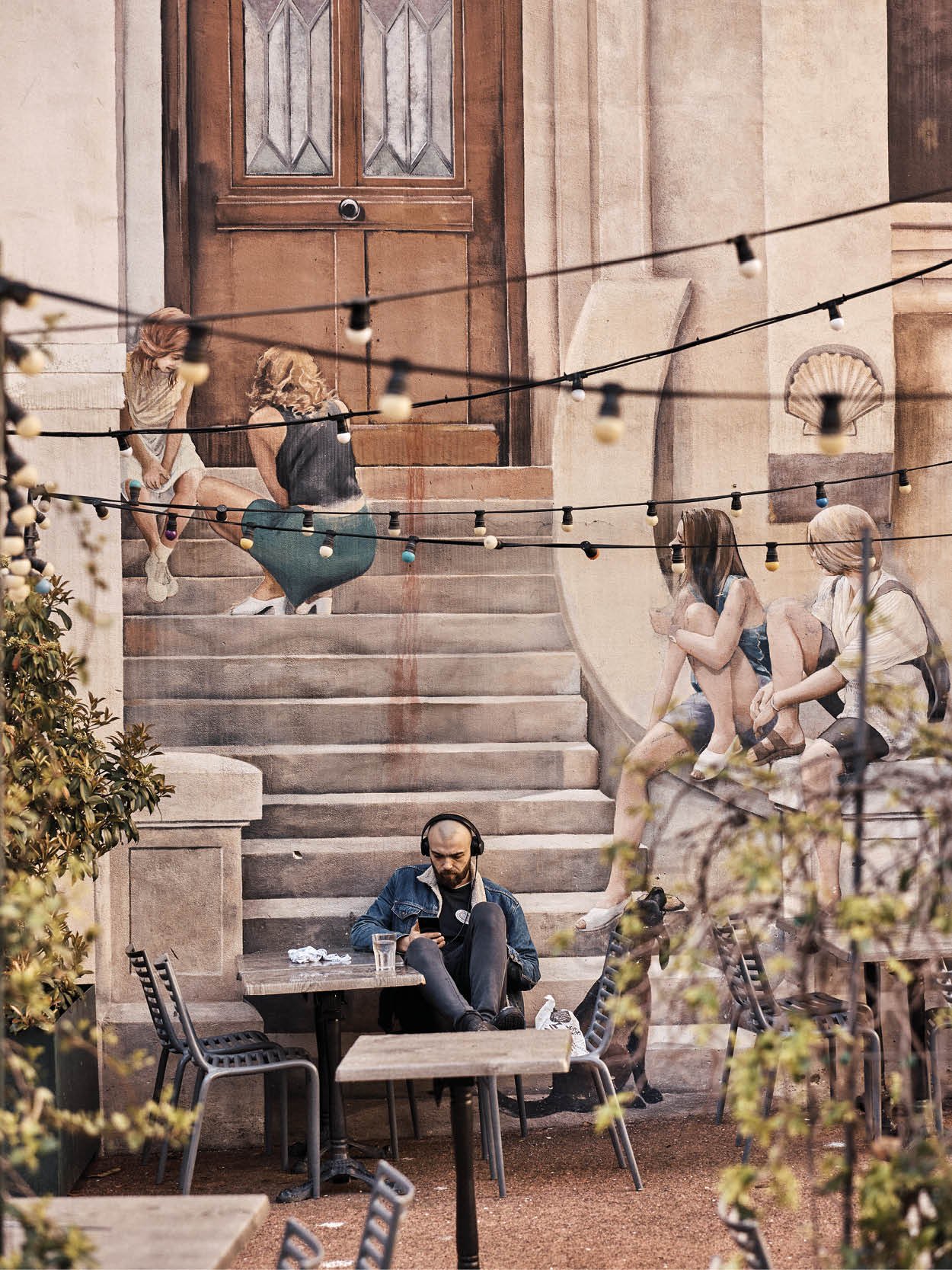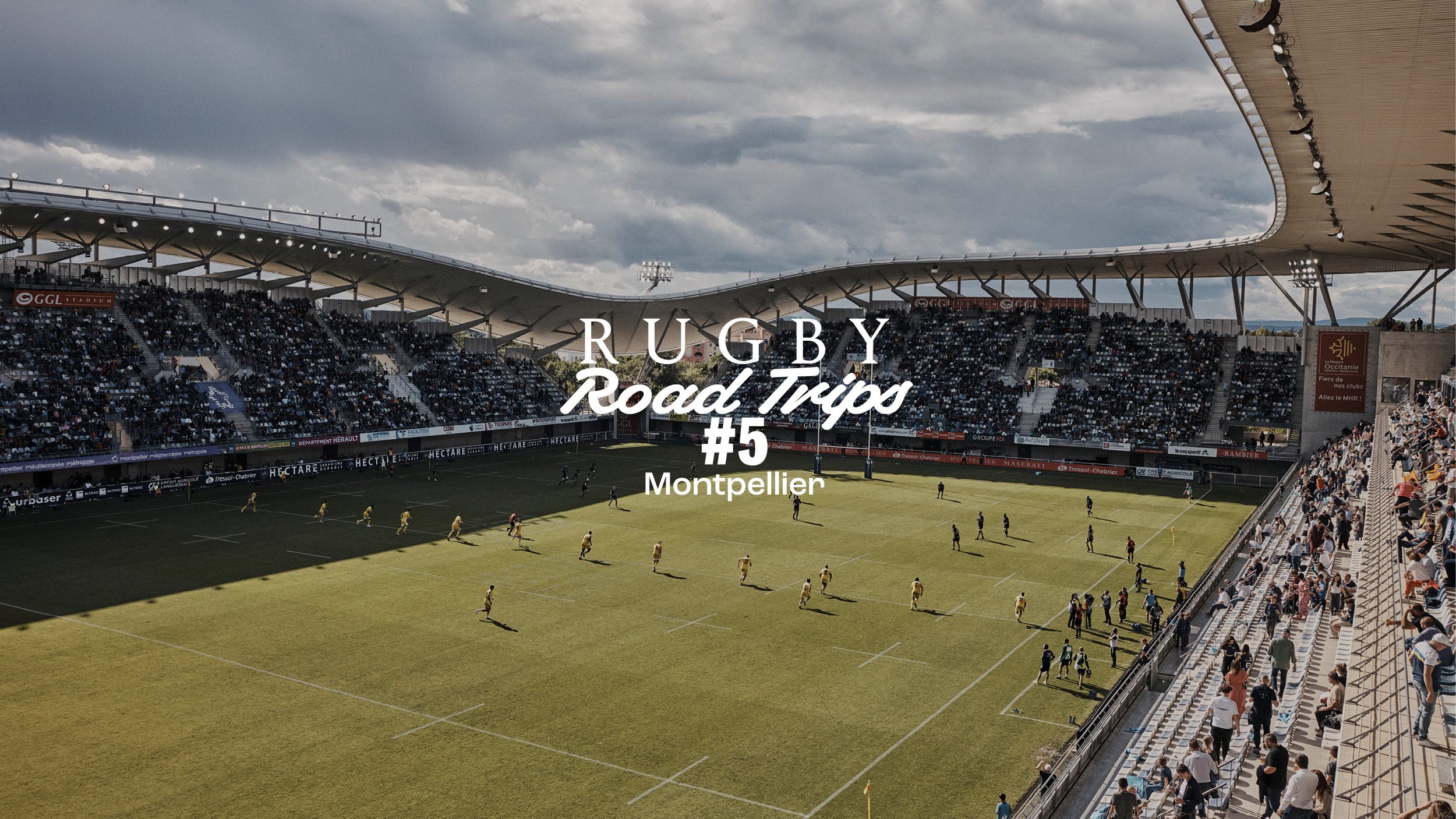
Little over a thousand years ago, a small village began turning into the vibrant, artsy modern metropolis that is Montpellier. In the south of France, old is beautiful, except here they beg to differ, always accepting the new, as they did the rugby club that rose to the top in just four decades.
Nostradamus studied here, but perhaps even he couldn’t have seen the rise of Montpellier Hérault Rugby in a city too often in the shadow of its illustrious neighbours. Yet last season it eclipsed all in rugby’s most competitive league.
Halfway along the final western Mediterranean curve of France, with Marseille one hundred miles to the east, the Spanish border 120 to the west, Montpellier is part of the vast region of Occitanie which blankets a huge chunk of southern France. It resides within the smaller department of Hérault (named after the river), which itself was once part of the former province Languedoc, famed for its wine. Mapping France has never been a simple task – regions, historical regions, departments... even working out a postal address is akin to some kind of Russian doll-esque cartography.
A little over six miles from the coast, Montpellier is close enough to feel the cooling breeze of the Mediterranean with a pink corridor of flamingo-lined estuaries connecting the azure blue of the sea with this artfully paint-splattered sandy city. Colour is never in short supply, here.
Amid the golden stone buildings that populate its shield-shaped city centre, there’s art spliced in at every opportunity, managing to both not offend the history but also contrast it perfectly, like coloured balloons on a perfect blue sky.
It manifests in miniature bright mosaics (of computer game characters, next to random street signs); festooned alleyways with multi-coloured steps and bunting; frescos of city life which cover the entire side of buildings; graffitied cashpoints sitting next to BMX bikes jutting out from walls (that’s modern art). Despite the contrast of old and new, it works, modernity able to rub shoulders with cathedrals and crypts.
Like many cities in the south, there seems to be a fountain and bar-lined square every hundred yards, as if that’s the farthest the French go without refreshment.
Built on two hills, the name has no single translation: hill of spices, hill of stones or hill of young girls, call it what you will. It’s even been Spanish, specifically Aragon, for a time. And while wine was once its lifeblood, today it’s education.
Montpellier is a young city, in many ways. Just a thousand years of history, paltry compared to the 2,600 or so of Marseille, or the 2,400-plus of Bordeaux, and every other person who lives there is under thirty, in part due to the 70,000-plus student population. Teaching, specifically medicine, has been synonymous with the city almost since the beginning.
Rugby, at least in the professional form, is young too. Montpellier Hérault Rugby, a side we’ve become familiar with challenging at the top end of the French and European game for the past decade or so, was only born in 1986, through the merger of amateur sides Stade Montpelliérain and MUC Rugby, neither of whom were pulling up trees at the time.
Arriving in the Top 14 in 2003, a first European win followed in the now-defunct third-tier Parker Pen Shield, beating Italians Viadana 25-19 in the final. They’ve been a contender ever since, twice winning the Challenge Cup – but otherwise a regular in the Champions Cup – and three-time Top 14 finalists, albeit with just the one win to their name: last year’s 29-10 dismantling of Castres.
Today, though, they are saying goodbye to that title, in the most literal sense. The visit of La Rochelle is Montpellier’s last home game as reigning champions, and the city celebrates one final weekend, with the iconic Bouclier de Brennus – a giant slab of ash carved into a pallet-sized trophy 130 or so years ago and awarded to the winner of France’s top division – is on a tour of the area. We see it everywhere we go, from oyster farms in the Mediterranean (the excellent Au Detour, in case you visit, where you can eat them on a terrace over the Med, just yards from their salty home) to the Michelin-starred restaurant atop the architectural marvel that is L’ Arbre Blanc, a seventeen-storey, bleach-white building with balconies jutting out like branches.
But for game day, the trophy is at the Stade Yves du Manoir in the city’s southern suburbs, placed next to the replica that the club get to keep as a forever-memento of the achievement.
Among those holding it aloft almost a year ago was Zach Mercer, the former Bath and England backrower, whose two seasons in France have put him firmly into his country’s World Cup plans. “Nobody expected Montpellier to come close, we were completely underestimated,” explains Zach. “We’d almost been relegated the year before [they finished tenth].”
This season though, the club have struggled in the lower regions of the table, and now fight it out for mid-table mediocrity. “With champions on our sleeve, people have really come for us and beat us,” admits Zach. “We’ve struggled to live up to the title, we’ve had injuries to a few key players, a few have left, and those left haven’t been ready to step up. I think we’ve learnt more this year in terms of rugby ability than last year to be honest.”
The move to Montpellier made complete sense for a then 23-year-old Zach. “It wasn’t a tough decision to come here at all,” he says. “I was nowhere near the England team, and I wasn’t playing for Bath, so as soon as Philippe Saint-Andre said he wanted me and gave me the opportunity, I jumped at it.
“I was still young enough to come back and have a crack at England,” he continues. “I’d recommend it to other young players too who are sat in turmoil, because for me it was outstanding, it put me in the shop window, I won the league and was player of the year.”
Like many, for Zach, Montpellier was a dot on the sporting map, but not the geographical one. “I knew the history of the club, but when I signed it was covid so I couldn’t visit Montpellier, so literally the first time I went was when I moved here,” he admits. “It was a blind move really. But I knew a few players here, and figured the best thing was just to jump in and go head first.
“It was really tough to settle in at first,” he adds. “The French have a very laid-back way of doing things, and I’m not used to that in England. For instance, when you wanted to get things done by a certain time, we were told ‘just let it happen, don’t fight anything’, so that’s what we did. Ultimately things did get done, just not the next day.”
Unlike English clubs where players were ‘in and out’ of training, Zach found the community aspect of the playing squad more Mediterranean in style. “They’re massive on spending time with each other, it wouldn’t just be in and out, they’d be in the club all day together, socialising. I loved it...
“I’ve loved the whole experience,” he continues, “it’s left me reflecting on a lot of things. I mean, it’s southern France, a lovely part of the world, lovely people, the beach ten minutes away, it’s been life-changing.
“It’s funny,” he continues. “I went out with what was my girlfriend at the time, and now we’re going back married, with a baby on the way. In two years, it’s changed both of our lives, it’s always going to have a special place in our hearts. We’ll miss everything.”
Zach also picked up another skill. “I had to learn the language,” he says. “I was vice captain in the second year and I was doing the lineout calls too, so I had to speak it pretty well. I’m not fluent, but pretty good.
“France is just completely different,” he says, “the hostility of the crowds, the size of the players – everyone is an absolute mutant, there’s a lot of big old lads.
“I came here with no pressure as nobody knew who I was and I really enjoyed the rugby, but it’s really physical, the most physical league in the world and I absolutely loved having a crack at it, but it’s also the crowds, they’re outstanding.”
The way of life, says Zach, helps put the fans in a good mood with or without rugby. “It’s a very different climate, life is a lot better when it’s sunny, thirty degrees, and you’re drinking beer.
“People in England love rugby, but people in France live for it,” he says. “And that’s one of the reasons I wanted to go to Gloucester [he is joining them from next season]; I think their fan base is one of the closest to the French in terms of being passionate and loving rugby. They’ve got one of the best, if not the best, fan base in the Premiership.”
Not that it’s been an easy decision. “It’s been really tough [to leave], it’s just been a massive part of me and my wife’s life for the last two years, it’s been such a special experience,” explains Zach, “but the pull of trying to put on an England jersey was too strong.
He’s returning to England in every sense. To live in and, hopefully, play for his country. The latter, he’s had limited experience of beyond two caps in the 2018 Autumn internationals for Eddie Jones, a bench appearance against South Africa and a start versus Japan.
Yet it’s the Australian who can be thanked for getting Zach thinking about a return. “To be honest, I’d sacrificed many things and I thought the [2023] World Cup would never happen,” he admits. “But in my first year I had a meeting with Eddie in Marseille and he wanted me to come back so he could take me to Australia. I had to turn it down and finish the contract with Montpellier – I owed it to them – but it did make me realise that putting an England jersey on could become reality. Eddie was keen to take me and that was something I didn’t think would happen before. To be honest I didn’t even know if I was eligible...
“That’s why I’m coming back to play for Gloucester, I’ve had a conversation with Steve [Borthwick] but there’s no guarantees and I don’t know if I’ll even get in, but just to get the opportunity… let’s see what happens next.”
Twickenham, Ellis Park, Eden Park and Murrayfield are perhaps not the most likely names for stands in a French city, but this is Montpellier. The Stade Yves du Manoir, or GGL Stadium to give its sponsored moniker, follows the theme of classy modernism sprinkled throughout the city. Built for the 2007 Rugby World Cup, yet it never hosted a game, it’s impressive, nonetheless. Its undulating bowl shape brings the cauldron acoustics so desired in these parts, especially with a capacity of 15,697 – although even the minority La Rochelle contingent are, perhaps unsurprisingly, making their presence felt and heard in such a sound chamber.
The beauty of it all, especially when basking in spring Mediterranean sun, is that one entire length-of-the-pitch stretch beneath the stands has been left for ‘standing room only’, meaning you can grab a beer, and lean against the railings for the entire match. Grassroots rugby in a galactico setting. Sun, beer and sport fans, and no need for a single steward to get even remotely flustered or heated in the hi-vis.
Keeping the tills ringing, or card readers pinging as is the modern way, for the entire duration of the game, makes financial sense in a game where revenues seem tricky to come by, and this we find at a club not short of a few euros, thanks to its billionaire owner Mohed Altrad.
The Syrian could fill a Rugby Journal on his own with his story; as a ‘child from the desert’, the product of a rape by a Bedouin tribal chief, his mother died when he was young, and he was brought up by a grandmother after being rejected by the tribal chief, and was destined to be a shepherd, as is the case for many Bedouins. But he found his own way to education and, ultimately, arrived in Montpellier on a scholarship with two hundred Francs to his name, in 1969. He studied, he worked, he built and created a monumental empire in Altrad, – a provider of supplies to industry, from scaffolding to tools – worth billions, employing 52,000 across the world, 15,000 in France alone.
And then in 2011, to thank the city, he became the main shareholder in the club, saving it from financial struggles, and setting the club on a path that would make it a force in French and European rugby for the past decade.
He’s a presence at the ground today, and the fans appreciate what he’s done. And it’s not been easy. He had a strained relationship with Fabian Galthié – who had delivered the first Top 14 final, a 15-10 defeat to Toulouse – that came to an acrimonious end in 2014, and, even when appointing a World Cup-winning coach Jake White, challenges awaited. He won the European Challenge Cup, 19-26 against Harlequins in 2016, but when things didn’t go well, the South African’s recruitment policy was brought into question. Too many Du Plessis, Steyn, Spies, and generally non-French players – a squad list of 39 players at one stage during his reign included just eighteen from France – led to a nickname, the ‘Langueboks’ – a play on the historic region of Languedoc-Roussillon in which Montpellier sits.
French-speaking New Zealander Vern Cotter replaced White and brought calm and instilled more Gallic and grunt into the side. Again, they reached the Top 14 final, losing 29-13 to Castres, then he left to join Fiji, mutually agreeing to leave earlier than expected in 2020, with current coach Saint-Andre waiting in the wings.
Saint-Andre finished the job, filling the gaps in the right way, and finally secured that Top 14 win with a 29-10 defeat of Castres (who had topped the league table before the play-offs, two points ahead of second-placed Montpellier) and the club and city could celebrate together.
Back in the stadium, although they’ve no chance of making the play-offs, Montpellier look every inch a championship side, even when their opponents today are the champions elect for many – something that came to fruition on the European front before we went to print. By half-time, Montpellier are 28-10 up, albeit against a much-changed La Rochelle side, but the rugby has been fearsome from the home side. Sat behind Rugby Journal, a Kiwi is full of praise of Zach, continually telling his neighbour of the Englishman’s incredible work-rate, off the ball as much as on it.
Sean Fitzpatrick comes to Montpellier regularly. “The All Blacks have a partnership with Altrad, so I come here quite a lot,” he explains. Altrad, the company – although both brand and man are impossible to separate – are official partners to not only the French Rugby Federation, but also New Zealand Rugby and Western Force. “I’ve seen a few games here now,” he continues, “I love the atmosphere – you don’t get this in terms of club competition, I think it’s phenomenal. It’s no surprise France are number two in the world with a club competition like this week-in, week-out. The quality of rugby is outstanding.
“They play with flair, but they’ve now got the organisation, and the speed and tempo they play at, they’ve got to be incredibly strong with it.”
Sean is a big convert to French rugby. “I love it, I remember coming to these parts of the world when I was playing and it was always a real challenge. But the fun and entertainment is very hard to replicate around the world.”
And the game he sees in front of him is only further proof to back up France’s World Cup challenge. “It’s about the quality of players and fitness levels, the style of rugby.
“This French team are completely different,” he says, comparing the current crop to the sides that have come before, “they’ve always had the flair, which they still have, but they’re organised, defensively they’re very good, but just look at the size of these men, my god, it’s going to make for a great World Cup.”
As for Montpellier. “It’s a beautiful town, and it’s not bad watching rugby in twenty degrees, is it?”
Giving up on an Irish rugby dream isn’t an easy thing to do. Although he is injured, we meet Montpellier’s Drogheda-born centre Karl Martin in the hospitality area at half-time. “I was with Leinster during covid but there wasn’t any rugby going and I wasn’t contracted, so I got in touch with one of my old coaches and he set me up here,” explains Karl. “They [Leinster] wanted me to stay there, but they couldn’t guarantee anything, and I suppose I wanted a little bit of certainty.
“It was a tough [decision] though,” he admits, “because when you’re young and grow up, you go to all the matches and dream of playing for Leinster, but I think it was the right decision to come over here and it’s paying dividends.”
Karl had already played for Ireland at age grade level and, then aged nineteen, he would have been a good bet for the under-20s, but a three-year academy contract with Montpellier had obvious appeal. “And, at the end of day, it was a chance to spend three years here and I’ll probably stay longer too,” he adds.
Ironically, he made his Champions Cup debut against his home side – a brutal 89-7 crushing at the RDS Arena – and, coupled with a senior debut against Toulouse, he’s been given a couple of baptisms of fire. “I think the Top 14 [debut] was extra special,” he says. “Away in Toulouse to a full a stadium, that was pretty scary coming off the bench for my first cap.
“But as my first involvement with the professional setup, I couldn’t speak highly enough [of it]; the players all get around you, even in training if you make a mistake, it’s no big deal. Making your debut in a championship-winning season is pretty special.”
A return to Ireland isn’t on the cards in the near future, even for a holiday. “The season is so long here in France, that while you want to go home to see your family, at the same time you’re leaving the Mediterranean to go home to Ireland in the summer, so you don’t really want to be doing that either,” he laughs, adding that he’s actually doing neither the Med or Dublin this summer, but heading to Canada with team-mate Tyler Duguid.
In the second half, La Rochelle show their mettle, coming back to narrow the gap against the hosts, outscoring them 21 to 14, which is good, but not enough, as they fall 42-31. At full-time, the fans stay in the stands, and the bar, long after, as goodbyes are said to departing players, presentations made, everyone still basking in the spring sun of southern France.
Still unsure as to whether this is his final game in Montpellier, is the English-born prop Henry Thomas, winner of seven England caps from 2013-2014 under Stuart Lancaster, but freshly called up by the land of his father, Wales.
Like Zach, he moved to France to freshen up his rugby life. He once seemed set for a lengthy career in the England front row. “Playing against the All Blacks at Eden Park [the 20-15 loss in 2014] was a massive career highlight,” he tells us after the game. “I played the first Test, and then had a neck injury that made me miss the next two, and then went through a string of injuries and lost my place to Kieran Brookes [who, ironically now also plays in France, with Toulon], who’d done well in the last two Tests.
“The next season I worked my way back, but then missed out in 2015 with a shoulder injury,” says Henry. “I just couldn’t play enough minutes consistently. I’d have a good half season, get back involved in squads, then when it came down to it, I’d get another long-term injury. I could never get enough momentum to cement down a place and that was frustrating, I really do feel like I’ve got unfinished business with international rugby.”
Although still managing to break a century of appearances over his seven years with Bath, Henry struggled with all the injury disruptions. “There were some real low times for sure,” he says. “I was never like, ‘it’s done’, but trying to keep up motivation when you have back-to-back longer-term injuries…
“I tore a hamstring off the bone against Exeter in 2019 at the end of the season after I’d had a full season going well with Bath. I had an operation over the summer, came back in October, then did my second ACL in the first game back, that led into 2020, and the lockdown came.
“Then when you’re doing isolated rehab through Zoom...” he begins, “I reflected a lot during that period. I looked back and felt I missed out on a lot of stuff because of injuries. I tried to push myself to reignite things because I knew, at that point in my career, I knew had to come back with the right mindset and not let this tail off.”
In the first game back, he suffered a partial dislocation of his shoulder. Fortunately, it didn’t require surgery but it still kept him out for a while. “But I managed to play twenty games that season for Bath,” he says, picking up the story. “I had to dig deep for that, and by the time I got to the end of that season I knew I needed a different challenge, a different league, after eleven seasons in the Premiership, that’s why I ended up in France.”
Although he’d almost moved to today’s opponents as a medical joker – Bath had rejected it – Montpellier were among those interested, with a long-term contract. “By that stage, I’d weighed up my chances of getting involved in international rugby, but with all the injuries I’d had, I was getting a bit older, there was less and less chance, as a 29-year-old. It felt like this was now the chance to spend decent time in France, make a go of it, rather than doing a bit with a one-year contract. I wanted to have a proper crack at be here, settle in, really enjoy where I’m at.”
Given the assorted restrictions, international rugby was not on his mind. “Part of it [the move] was, ‘I don’t think I’m going to be getting involved international rugby now’, but things change, I’ve stayed fit, we won the Top 14...”
Injuries haven’t hampered him either, not that he knows why. The French climate? “I can’t give you a definite answer,” he says, mulling it over. “The game is played in a different way, the Top 14 is full of massive, massive blokes, the game is full of game-breakers, it’s more abrasive, but at same time props play 45-50 minutes, then change.
“Maybe it’s the sun,” he says. “But for me, I’ve just been focusing on the same things I did before rehab. It’s been a test for me though, playing international rugby and eleven years in the Premiership, doesn’t mean anything in the Top 14. You’re new to the league so you’ve to prove a point.”
As with every Englishman abroad, he’s enjoyed the intimidating atmospheres of French rugby’s away days, but it’s also the competitiveness of the league. “Look at this year,” he says, “the finalists in the Top 14 were us and Castres, and now we’re ninth and eleventh, that shows how close it is in the league. A couple of different results a few weeks ago and we’re in the top six and play-offs.”
He credits the coaching trio of Saint-Andre, the now departed Oliver Azam and Jean Baptise Ellisalde with turning a side that finished tenth the season before, into champions. “You could see the mindset shift when these guys arrived. They’d won the Challenge Cup [in 2021, 18-17 against Leicester] and from that could see the fire start to burn and grow and last year was exceptional. Winning the Brenus is indescribable: winning the semi-final in Nice [19-10 over Bordeaux] and then the final and seeing the celebrations shows how much rugby means to this place, to the fans, it’s something I never understood until I came here.
“Montpellier is not known as a rugby city because there so many sports here,” he explains. “Football, handball, volleyball, they’re massive in their own right in Europe, but when we went to the semi-finals in Nice against Bordeaux, the amount of travelling support was amazing; we turned that stadium into a cauldron.
“Then after winning at the Stade de France, we took a train into Place de la Comédie – the city square – and there were 15,000 people there with flares, all going absolutely bananas, a special moment, it still gives me goosebumps.”
Of course, just as with Zach, Henry’s form hasn’t gone unnoticed, albeit not by England, but by Wales. “There’s been various things mentioned by agents over the last eighteen months, nothing too serious or concrete, especially when the rules were changing,” he says. “My dad [who was born in Wales] certainly brought it up a few times, but for me, I was in France, and didn’t even know it was possible.
“I guess I was happy in ignorance not knowing the rules, and presuming because I was playing in France I couldn’t play anyway.
“Then I got a call from Richard Cockerill who’s taking over as forwards coach here, and he said he’d passed my number on to Jonathan Humphreys, because he wanted to have a chat. It was a bit out of the blue, he rang a few days later, he said ‘look, your name is in consideration, we’ve got a final meeting Monday, then I’ll let you know, but your name is being spoken about’.”
“I didn’t know what it meant, I told my dad and girlfriend, then Monday came around, and it was, ‘look, you’re in’. Ten minutes later, the squad is announced and my phone was blowing up, so it was a bit of a funny time, looking back now, but it was an incredibly proud and special day, for me and my family. There’s a bit of uncertainty about life here in France, but it’s a big opportunity.”
Naturally, the call-up of an England-born prop with caps for England, including one in a 29-18 win over Wales at Twickenham to secure the 2014 Triple Crown, isn’t going to be an instant hit with the fans. “That’s always going to be the case, it’s not going away,” he says of the criticism. “All I’ve tried to do is tackle the questions head on, rather than avoid or ignore them. Those question marks aren’t going away until they see what I’m doing. That’s the only way to show them I’m the right choice. I just hope they get the chance to see me play for Wales and show them the commitment and ability to make them think, ‘yeah that’s a good call’, but until then there will always be some people who disagree. But it’s also a pressure I like, to perform. People want me to fail, that’s great motivation.”
Even as we talk, he doesn’t know if his future lies in France. As he was uncapped [for Wales] when called up, he’s exempt from Welsh rugby’s rule on overseas players. “I’m still contracted to Montpellier, so it’s all a bit up in the air, but they’re not particularly pleased I’m going to be away for the World Cup, so it’s been a bit turbulent,” he admits. “Without going into detail, I believe I can play until end of my contract, because I’m uncapped – I think some of the actual ins and outs of it are a bit obscure, even my agent had trouble with some of the nuances.
“Dad’s trying to keep the emotion in check,” says Henry. “He realises how much time there is to come between now and potentially putting on the jersey, but if that day comes, we’ll both be unbelievably proud, it’ll be so special to the Welsh side of the family, who had to endure the opposite ten years ago.”
And Montpellier has also helped him in other ways to prepare for the biggest pre-season of his career. “It’s such lovely place to live, and the sun is great, and it’s great to be by the beach, but it’s absolutely brutal in the summer doing pre-season in the south of France in forty degrees.
“I do like the lifestyle,” he admits, as he faces a decision over his post-World Cup future. “The league is tough and long, and when it’s not going your way it’s particularly tough, but Iet’s see how the summer goes. The Welsh camps are designed to put you on the edge, it’s going to be brutal, but let’s see how far I can take that.
“Then I’ll make a decision,” her surmises, “I think having all of this outside of rugby, the beach, the sun, gives you a different mindset, perhaps brings a different element to your game.
“But yeah,” he concludes. “I really love living in France.”
This extract was taken from issue 22 of Rugby.
To order the print journal, click here.


